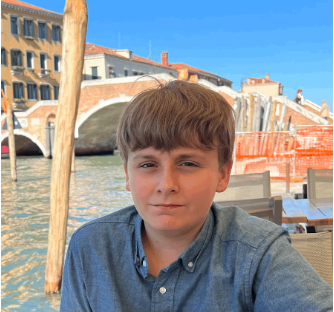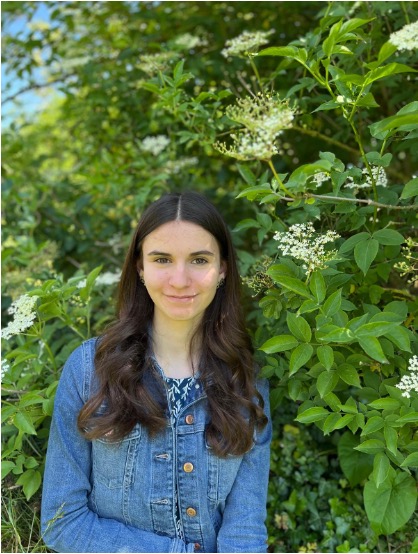Ashton and Zara, siblings from the United Kingdom, co-founded an organisation called Hidden Plastic during the COVID-19 pandemic in 2020 to raise awareness about plastic pollution and its impact on child health.
By Ashton, 14, and Zara, 15, United Kingdom
I’m Ashton, 14 years old, and from the United Kingdom. After finding out about the dangers of plastics in the ocean, we have been working on various campaigns, like getting PepsiCo to fund legacy plastic cleanup and helping to get reverse osmosis water refill stations throughout the Maldives (our current project).
The plastic problem has many forms: from the production of unnecessary plastics to the eventual end of life. So I hope that this treaty will be able to address all of these problems from a global scale, where it is not up to individual countries or companies to change. It needs to be global and legally binding.
I believe that youth should have a strong role in treaties like these because we are the next generation and will be the ones to inherit this planet, so it’s incredibly important that we have a voice in important decision-making events like the Global Plastics Treaty (INC-5).

Ashton, 14, United Kingdom
It is my generation and the ones to come that will have to deal with the consequences of the adults' decisions about this treaty, so we should be given more of a voice in this process.
Zara, 15, United Kingdom

Zara, 15, United Kingdom
My name is Zara. I’m 15 years old and from the United Kingdom. I care deeply about the harm plastics bring to our oceans and have often felt climate anxiety.
Hidden Plastic was our way to channel that climate anxiety into positive action. Since the start of our organization, some of our achievements include: pitched seaweed-based ‘alternatives to plastic’ to executives at Delta Airlines and attended two Global Plastics Treaty negotiations in Paris and Canada.
Along this journey, I learned that while my fears of plastic bags choking sea turtles were real, they were only the tip of the iceberg. Plastics cause a lot more harm and contaminate almost every surface of the Earth, from the bottom of the ocean to human blood. They have serious impacts on human health and unfairly impact those who do the least polluting.
On our journey, we’ve learned from and been inspired by the other youth involved. And while it is heartening to meet them, we have been surprised by how few under-18s actually have any seat at the table, or even get to witness the decision-making that will affect our future, such as the Global Plastics Treaty.
In fact, out of the 2,500 people that attended INC-4 in April, there were only 4 under-18s (including Ashton and I) at the entire event.
It is my generation and the ones to come that will have to deal with the consequences of the adults' decisions about this treaty, so we should be given more of a voice in this process.